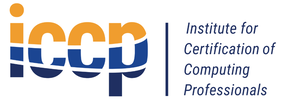1. IT Strategy & Resource Management
This course takes a comprehensive IT/CIO perspective of business-IT strategy by addressing the strategic, tactical, and operational roles and responsibilities of IT and non-IT executives in managing IT as a strategic business asset. While the alignment of business and IT is the primary focus, emphasis is placed on the current/emerging issues/opportunities in creating and coordinating the significant Cloud activities necessary to ensure IT’s contribution to the success of the organization. This is done by examining important considerations such as IT governance, IT value, IT processes, IT organizational structure, HR & sourcing, managing emerging technologies, the role of the CIO, and IT-business strategy. By concentrating on ITs strategic responsibilities, in essence this course puts the candidate in the role of the CIO as they build a business strategy that is enabled/driven by IT.
2. Managing Cloud Resources
The objective of this course is to examine cloud computing as a strategy and why business and Information Technology (IT) need to be working closely together in creating it. Because cloud computing is different from our past IT experiences, the lectures will identify and discuss the strategic and operational changes needed to create and drive success. To be successful in deploying Cloud, organizations need to understand how to move from existing technologies/architectures/infrastructure, and more importantly, how to obtain the value from these important initiatives. Integrating Cloud with other emerging technologies (e.g. Business Analytics, mobile, social media/networks, security, internet of things, crowd-sourcing) driven by a more dynamic business environment is essential. By taking the course, participants will gain a clear understanding of the strategic issues around governance, sourcing, legal and contracts, etc. that they need to consider, why these issues are important, and how to address them to construct a successful and workable cloud computing strategy.
Topics include: Value proposition, change management & culture, governance, sourcing, legal considerations, business & IT alignment for cloud, cloud applications, service level management, organization for cloud, human capital & skills, transformation roadmap for deployment (strategic & operational). Also included are overview discussions about IT operations, security, integrating existing and emerging technologies, and compliance & audit.
3. Enterprise Architecture
Enterprise Architecture (EA) is the analysis and design of an enterprise in its current and future states from a strategy, business and technology perspective. This course provides an exposure to the foundational concepts of enterprise architecture as a strategic planning mechanism for cloud computing. The course will provide students with the foundational knowledge needed to understand how EA serves to integrate strategic, business, and technology planning methods, which support enterprise-wide information technology resource development and governance in the context of business requirements. This course is designed to cover the theory, frameworks, principles and best practices of enterprise architecture then move to a practical, comprehensive approach to delivering the subject matter involving real-world case studies and project discussions.
Topics Include: Foundational Concepts, Organizational Alignment, Enterprise Architecture & Cloud Computing, The Open Group Architecture Framework (TOGAF), The Enterprise Architecture “Stack” and Implications for Cloud Computing, Planning for Enterprise Architecture: Considerations for Cloud Computing, Governance for Enterprise Architecture and the Cloud, Change Management Enterprise Architecture and the Cloud, Building and Maintaining Enterprise Architecture: Considerations for Cloud Computing, Leadership, Decision Making, and Team Formation for Enterprise Architecture & Cloud Computing, Enterprise Architecture & Cloud Computing Success Factors / Value and Risk Analysis for Enterprise Architecture & Cloud Computing, Comparative Analysis of Popular EA Frameworks and Methodologies and Implications for Cloud Computing.
4. Implementing the Cloud Data Center (e.g., security, systems integration)
This course provides an introduction to the concepts and principals needed to build and support an enterprise cloud data center. Candidates will investigate the emerging technologies (e.g. Business Analytics, mobile, social media/networks, security, internet of things, crowd-sourcing) and how they can be integrated, infrastructure deployments, organizational approaches and operational considerations that underlay managing the cloud data center. It will delve into how a cloud data center differs from a traditional one. In additional the course will look at methods for orchestrating public and private clouds, and how the cloud can be leveraged to delivery more cost efficient infrastructure and IT services to the enterprise.
Topics covered include: Cloud infrastructure principals as they relate to a deployment, emerging cloud technology standards, building scalable cloud networks, changing data center operations models and best practices, The Open Group Architecture Framework (TOGAF), emerging Cloud technologies, integrating technologies, managing for scale and elasticity, leveraging hybrid public and private cloud models, cloud readiness skills, develops concepts and how to apply them in support of a cloud, and finally cloud data center deployment life cycles.
5. Engineering Applications for the Cloud
The purpose of this course is to prepare candidates with the strategic, tactical, and operational competencies necessary to derive and carry out strategies, plans, and processes for migrating existing applications to the Cloud and how to build new applications that run effectively and efficiently in the Cloud.
When deriving strategies and plans for migrating to Cloud (whether insourced, outsourced, or hybrid) an area often not anticipated or understood is how to leverage this important infrastructure with the existing application portfolio and the anticipated future application portfolio. The purpose of this course is to provide the underpinnings of best practices that will enable the attendees to derive and deploy a successful Cloud applications strategy including howto build new and integrate existing applications, considerations for managing/leveraging data, how to organize activities and tasks of people and systems systematically into effective business processes, and how to evaluate cloud service offerings.
After successful completion of this program, candidates will also receive ICCP Certification!!!









